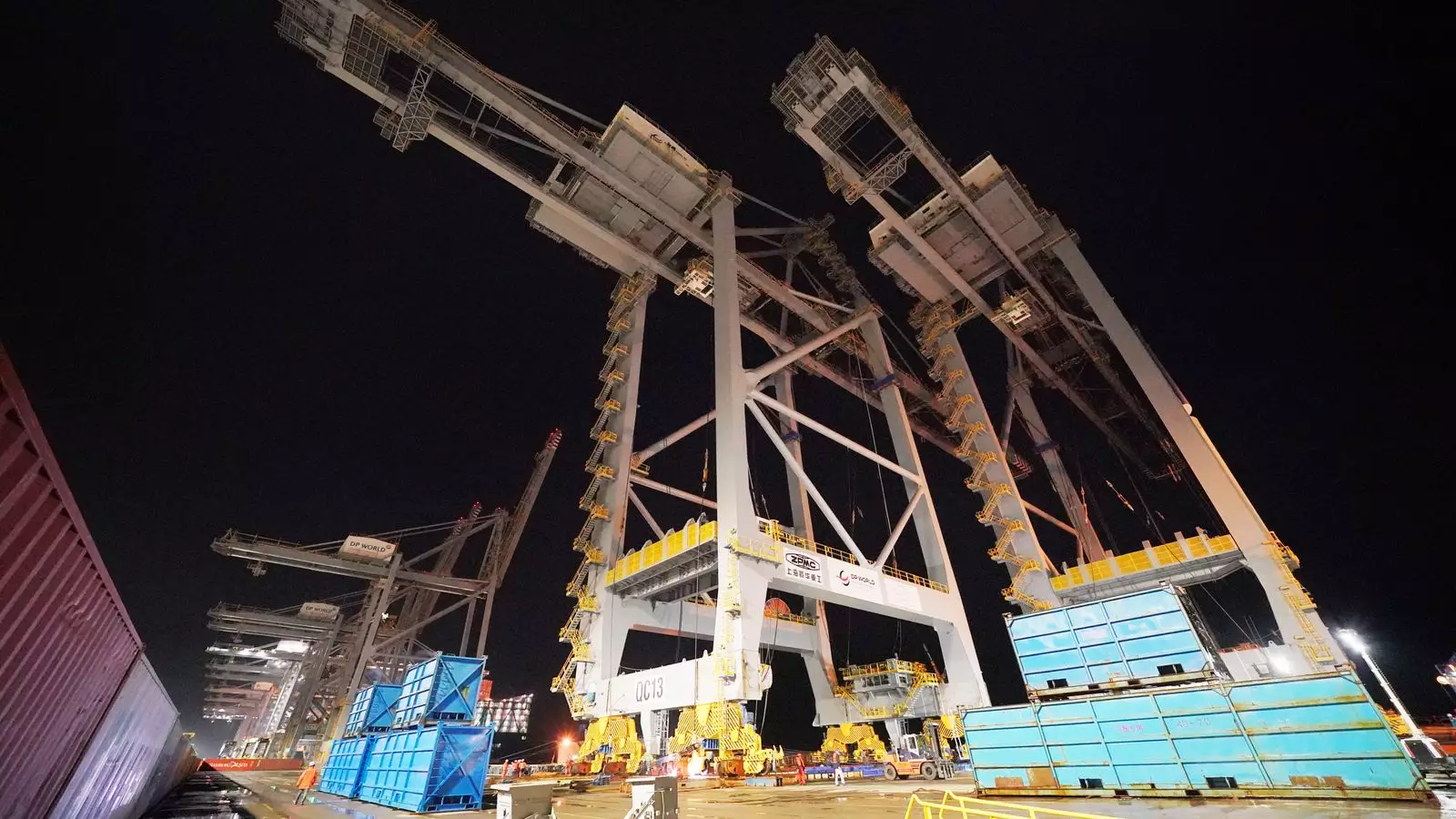The recent £1 billion investment commitment by DP World, an influential player in the global logistics sector, serves as a reminder of the fragile intersection between politics and business. Initially shrouded in uncertainty following disparaging comments made by Transport Secretary Louise Haigh, the announcement was nearly compromised, underscoring the high-stakes nature of international investment in the UK. As the Business and Trade Secretary Jonathan Reynolds articulated during an interview, the government found itself embroiled in what can only be described as a critical dialogue—a necessary response to media reporting that threatened the stability of the impending deal.
DP World, known for its ownership of P&O Ferries, found itself at the center of political discord when Haigh labeled the firm a “rogue operator” in relation to its previous actions involving mass layoffs of British seafarers in favor of lower-cost foreign workers. This action was portrayed by many as a betrayal of British workers, making Haigh’s comments not just politically loaded but potentially damaging to the country’s economic propositions. The implications of such political rhetoric, particularly from a figure of authority, amplify the fragile balance the government must maintain to reassure both local stakeholders and international investors.
The Investment Summit: Timing and Significance
The International Investment Summit scheduled for Monday is framed as a pivotal event for catalyzing substantial investments into the UK economy. However, its timing—occurring just weeks ahead of the government budget announcement—raises critical questions about strategic planning and the underlying intentions of the event. While it might have been part of Labour’s pledges while they were in opposition, the government’s decision to expedite the summit reflects the urgent need to restore investor confidence.
The expectation was ambitious, with up to 300 prominent industry leaders anticipated to participate, ostensibly poised to influence the financial trajectory of the nation. The pressure is on the government to deliver substantial outcomes, especially following past criticisms about their investment strategies and economic management. The investment summit becomes not just an opportunity to attract funds but also a moment for the government to legitimize its effectiveness in fostering a pro-business environment.
Elon Musk’s Absence: A Missed Opportunity?
Further complicating the narrative surrounding the investment summit is the notable absence of Elon Musk, the influential founder of Tesla and SpaceX. While Reynolds maintained a diplomatic stance when queried about Musk’s non-attendance, the reality is that having such an iconic figure present could have added significant weight to the proceedings. The minister’s response, emphasizing that the summit was about attracting the “right” kind of investment, overlooked the potential allure that high-profile figures like Musk can generate.
Nonetheless, the absence of any specific individuals should not overshadow the broader objectives of the summit. The UK government needs to focus on securing tangible commitments that can bolster the economy and enhance its global standing in the investment landscape. It highlights, however, the unintended consequences of public relations and image management in attracting foreign investments.
The unfolding saga surrounding DP World’s investment pledge offers vital lessons in the nexus of politics and business. It illustrates how political rhetoric can influence economic commitments, emphasizing the need for government officials to exercise caution in their public pronouncements, especially when dealing with matters of critical national interest. Furthermore, the relationship between major figures in commerce and policymakers must be navigated delicately to ensure that both sides can achieve their objectives without unnecessary confrontation.
The upcoming International Investment Summit therefore amounts to more than just a gathering of industry leaders; it symbolizes the UK government’s broader ambition to restore faith in its economic strategy. Policy refinements to address previous controversies, along with strategic networking opportunities with prominent investors, could pave the way for long-term economic growth. Conversely, any misstep, as evidenced by the rocky start with DP World, could trigger further skepticism and deter investment in an already cautious global economic landscape. As the UK seeks to establish itself as an attractive destination for global investments, the stakes have never been higher.


Leave a Reply